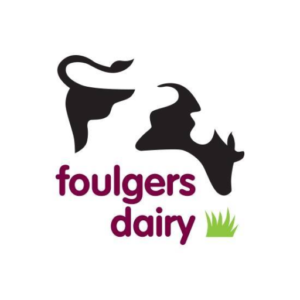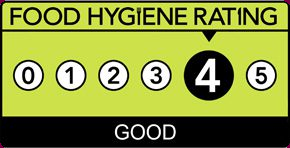The Raw Milk Debate
Putting Things In Perspective
The debate regarding raw milk and pasteurisation does and will continue, the following article looks at both sides of the story, we hope this helps put things in to perspective.
The Balanced View
Safety concerns mean there are currently no plans to make raw milk available in shops in the UK, and Sustain, the “alliance for better food and farming”, thinks the government has got the balance between freedom of choice and public health rights. “I think it’s correct that people who want and value unpasteurised milk can get it, if appropriate measures over hygiene have been taken,” says Kath Dalmeny, Sustain’s policy coordinator. “And clearly there’s some benefit in shorter supply chains, smaller herds where animals may be better looked after, and a direct connection between consumers and farmers. But it’s not a simple issue. Pasteurisation was brought in because of major public health concerns.
The Pro View
Raw-milk advocates insist it is more nutritious than its pasteurised counterpart. According to the Campaign for Real Milk, a US group lobbying for the normalisation of raw milk, pasteurisation destroys key vitamins and minerals and wipes out proteins that help to carry nutrients into the blood stream. Meanwhile, the results of a study by researchers at the University of London published in the Journal of Allergy, Asthma And Immunology last year suggest that children brought up on raw milk are less susceptible to a range of allergy-related conditions. According to these findings, just a couple of glasses a week reduced a child’s chances of developing eczema by almost 40% and hay fever by 10%: the researchers thought that raw milk could expose children to bacteria, vanquished from the pasteurised product, that prime developing immune systems.
Even though raw milk is a banned shops and supermarkets producers can sell directly to local consumers through farm shops, farmers’ markets and deliveries; it makes you wonder. Richard Young, an organic farmer and policy adviser for the Soil Association, argues that such fears are outdated. Raw milk producers these days have to adhere to stricter hygiene standards than conventional dairy farmers, he says, and are tested by the Dairy Hygiene Inspectorate more regularly. Unpasteurised milk is a “living substance”, says Young, and contains a range of chemicals that attack invading pathogens. What’s more, he adds, the infections in cattle that can lead to human illness, such as tuberculosis and E coli poisoning, are far more likely to result from the intensive, industrialised farming that produces most of the milk destined for supermarket shelves. “I am not aware of anyone even becoming unwell as a result of drinking milk from a registered unpasteurised milk producer,” says Young. “People who produce and sell it take the job very seriously. They tend to have closed herds or are very careful about where they get animals. Animal welfare tends to be particularly important to these small farmers. At the Soil Association, we think this less intensive model produces herds that are less susceptible to illness, and milk that is healthy and safe.”
Producers have seen a significant take in raw milk over the last year with some starting with bottling just one pint a week and are now selling 1,200 pints a week and the figure is growing. Nothing but word of mouth, it’s obvious that some people want to drink raw milk.” Customers fall into two categories, some older people remember drinking milk before pasteurisation and are drawn to its full and complex flavour. And then there are increasing numbers of younger people and families who are turning to raw milk as part of a shift towards unprocessed foods. One raw milk customer has been buying raw milk from a local supplier for three years and feeds it to her two young children. She is aware of the official warnings but believes raw milk confers health benefits that its pasteurised equivalent can’t match. “First of all, it tastes gorgeous, far better than ‘normal’ milk,” she says. “I also think that pasteurisation turns what is a very healthy, nutritious product into one that the body finds hard to deal with. I’ve been giving raw milk to my kids for three years without any adverse effects. Provided the milk is produced in hygienic circumstances I’m fine with that. And I know the farm that supplies our milk well.”
The Negative View
All milk was raw milk. Historically, although there are well-documented health benefits associated with drinking raw milk, there were also health risks with drinking raw milk. These were particularly tuberculosis, brucellosis, and bad bacteria such as Salmonella, E. coli and Campylobacter. When pasteurisation was introduced, it sterilised the milk of these harmful elements. It is for this reason the Food Standards Agency Health Warning “This milk has not been heat treated and may therefore contain organisms harmful to health” must be put on the bottle. Long-held safety concerns over pathogens found in unpasteurised milk mean that it is banned in Scotland, and banned from shops and supermarkets in England, Northern Ireland and Wales.
The Food Standards Agency (FSA) and other official health bodies, however, continue to warn against the consumption of raw milk. It has to carry a cigarette-style health warning, and though most experts agree that it has nutritional benefits, many argue that the risks of drinking unpasteurised milk outweigh them. The official line is that pasteurisation might destroy a few vitamins, but it also destroys harmful – even potentially fatal – bacteria such as listeria, salmonella and E coli. “Although these products are very popular with some people, they could be harmful,” says an FSA spokeswoman. “Children, people who are unwell, pregnant women and older people are particularly vulnerable to food poisoning and so should not have unpasteurised milk or cream.” Professor Hugh Pennington, a retired microbiologist and expert on food poisoning outbreaks, agrees. He has said that “the risks from drinking unpasteurised milk are just too great”.

